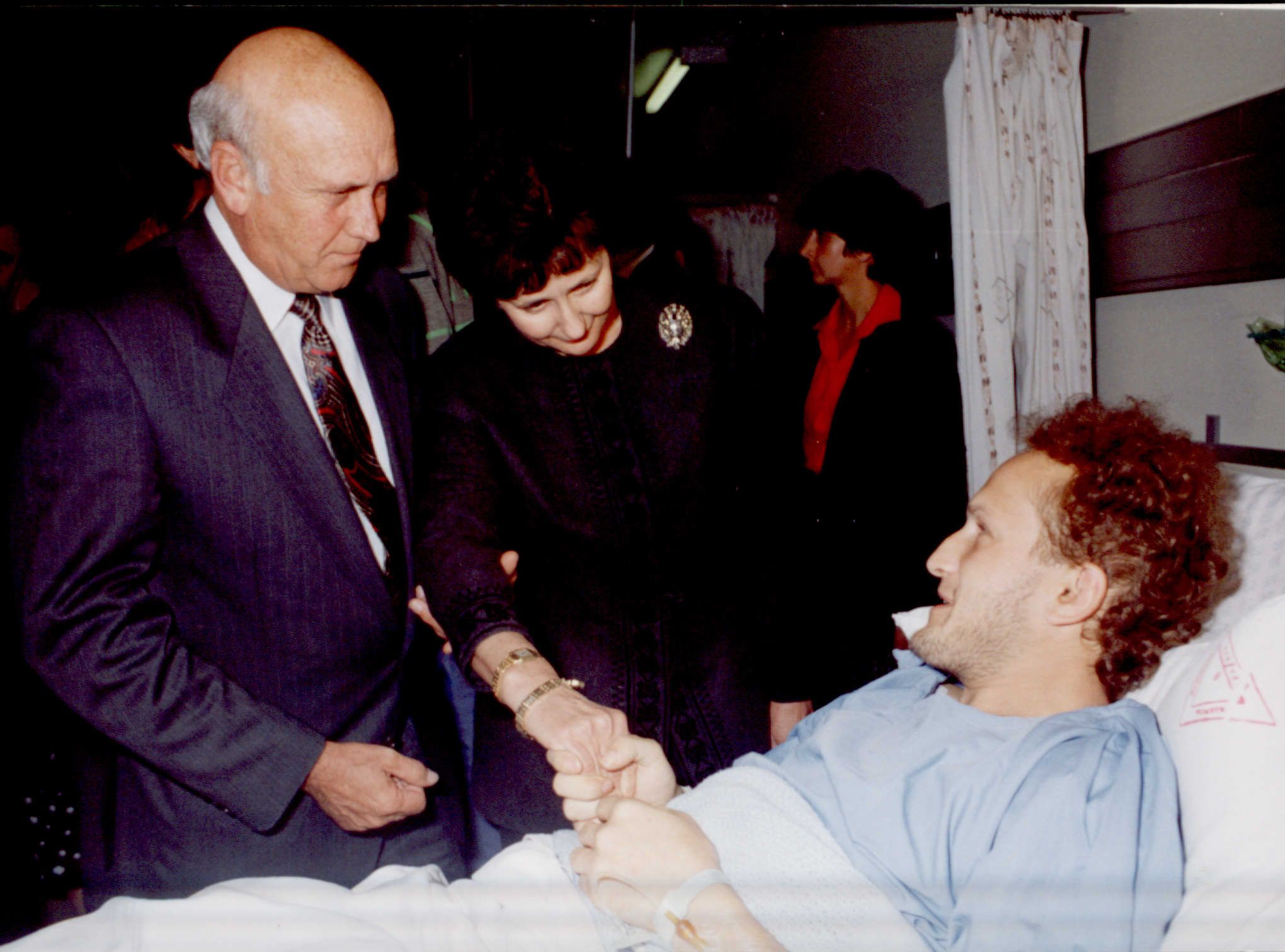The Night of the Storm
The St James Church Massacre retold, 30 years later
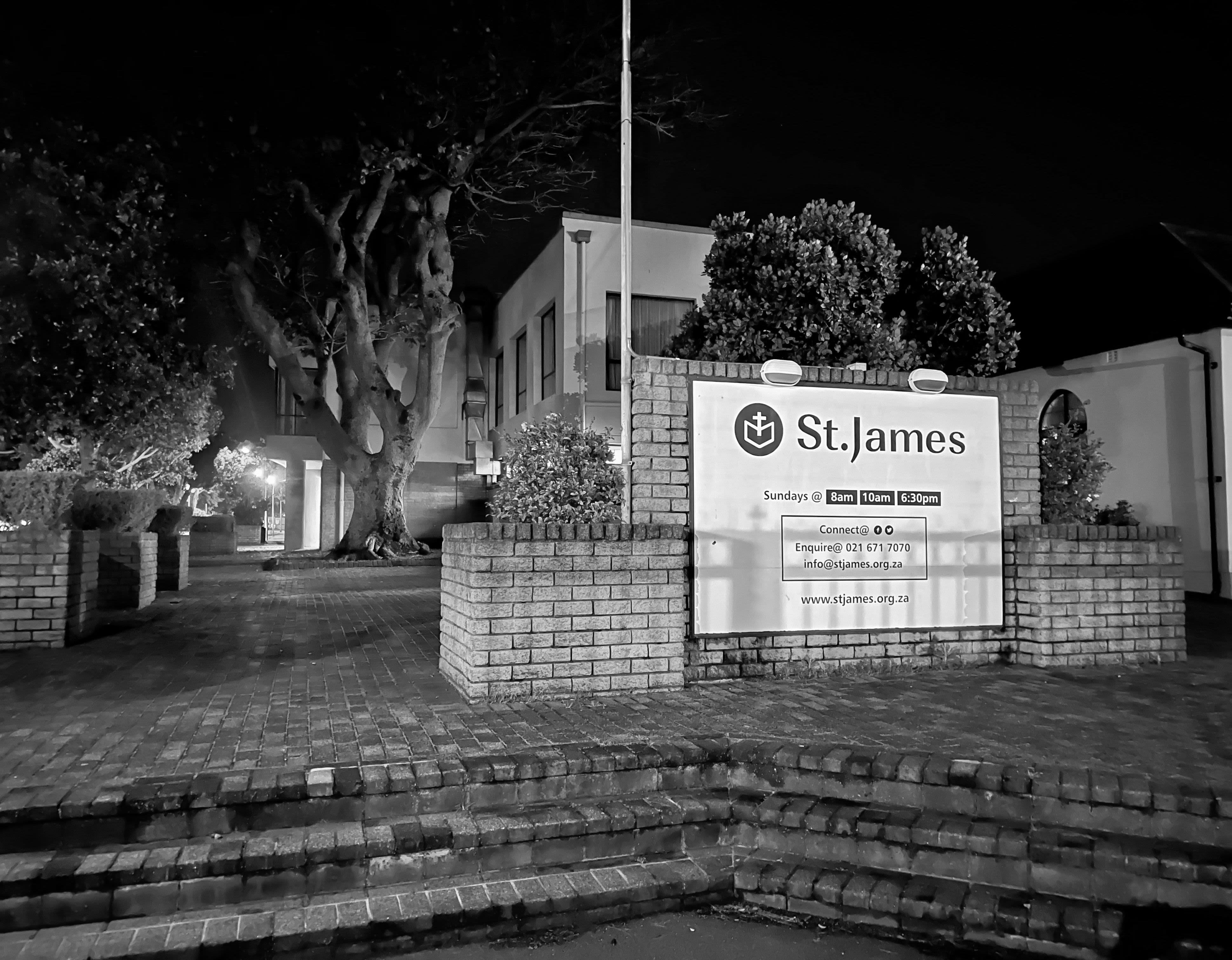

On a stormy July evening in 1993, two gunmen entered a church in Kenilworth in Cape Town and opened fire on an unsuspecting congregation.
Eleven people were killed; a further 58 were wounded.
And the nation was plunged into shock at such a brazen attack at the height of uncertain democratic transition.
This is the story of the St James Church Massacre - a politically motivated attack that took place just three months after the assassination of Chris Hani, and nine months before South Africans would go to the polls for the first time as a free nation.
It's a story about a country coming to terms with its past, of grace comforting grief, and forgiveness overcoming tragedy...
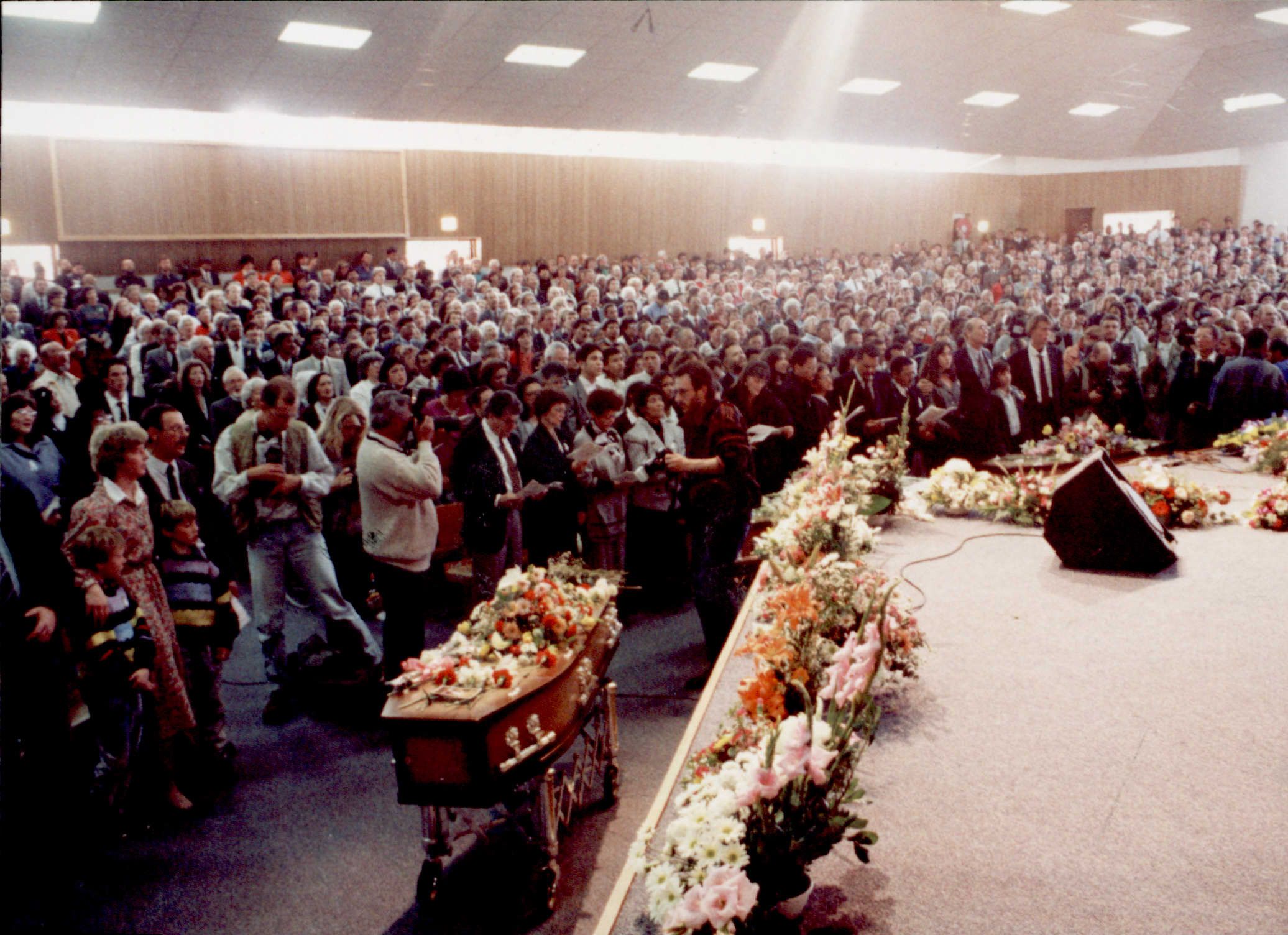
25 July, 1993

Four members of the Azanian People's Liberation Army sat in the rainy car park of St James Church at around 19:30 that Sunday evening while worshipers sang inside the building.
Two were preparing to go in armed with assault rifles and hand grenades. Another was preparing to stand sentry outside, and the fourth was idling the getaway car – a 1974 yellow Datsun.
One of their aims was to take the armed struggle into 'white areas', as heard at the Truth and Reconciliation Commission. St James though had always been a mixed church.
"I was leading the service. I had just introduced two of our young adults, and they were about to sing a duet," says Ross Anderson, associate rector at the time of the attack.
"At which point we heard what sounded like firecrackers to the right of me... But in a flash, I realised that wasn’t the case, because I saw the two men, and I saw they were holding firearms and firing."

Ross Anderson
Ross Anderson
Sichumiso Nonxuba and Gcinikhaya Makoma flung the doors open to the left side of the church stage, and proceeded to fire automatic rounds at the congregants nearest to them for approximately 30 seconds.
They then lobbed two hand grenades into the 1200-seater auditorium - one landing near the front, and one near the back.
Gerard Harker, 21, dived onto the first grenade. He succeeded in saving several around him, but lost his own life along with his 13-year-old brother Wesley.
Near the back of the church, Myrtle Smith was hit by a piece of shrapnel - wounded by one of the six-inch nails taped around the grenades.
Anderson recalls stepping up to the pulpit to yell "Get down!", as a hail of bullets flew over ducking heads. Many more were injured, maimed, or would have their own near misses.
It was in the heart of that early chaos that Charl van Wyk, a member of the church who was armed on the night, decided to take action.
"Once I realised that this was a real attack and wasn’t a play, I went down onto the ground with everybody else, and I pulled out a .38 special revolver that I had in an ankle holster," says van Wyk.
"I knelt behind the bench and took two shots at the attackers."

Charl van Wyk
Charl van Wyk
Makoma was hit in the hand, derailing the plan to return and throw four petrol bombs into the pews.
The gunmen fled. Van Wyk gave chase.
And silence descended on the church.

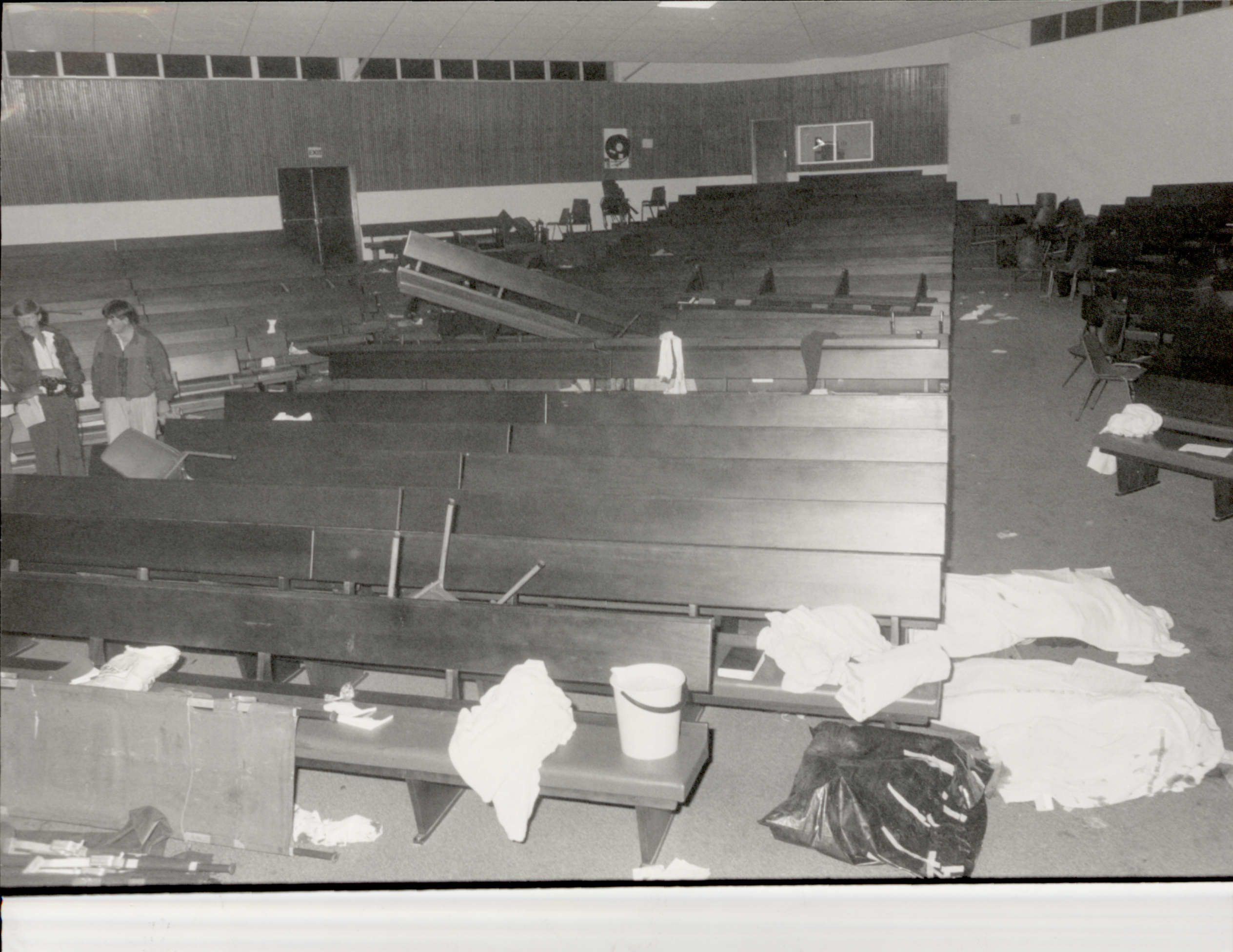
The Calm in the Chaos

As the getaway car sped away into the rainy night, members of St James Church were left to process those eternal seconds.
For many who were there, the feeling was it was strangely calm. There was crying and tears, but no hysteria, and no mass exodus for the doors until Anderson asked the congregation to evacuate.
"I can't remember any screaming or panic. It was extremely calm. People moved fast, but they moved peacefully out of the church," says Anne Ackermann, who had her own near escape after moving seats just before the service started.
"I went back to help or assist… and I saw people trying to help others."

Anne Ackermann
Anne Ackermann
The first person she saw upon re-entering the church was Myrtle Smith, lying in the aisle being attended to. Her husband Lorenzo, son Craig and Craig's girlfriend Liezl were sitting in a pew close by. Ackermann asked to huddle between them, and prayed for them.
Craig, 19 at the time, initially didn’t know his mom had been hurt. He too went down to see if he could be of assistance at the front of the church.
"My dad called for me to come back, and there was obviously something desperately wrong with her," he recalls tearily.

Lorenzo and Craig Smith
Lorenzo and Craig Smith
"She wasn’t able to verbalise anything, and we could see the life was fading… She passed away in the ambulance."
Near the front, sitting six rows from the stage, Janet Gie’s instinctive dive after Anderson's yell to ‘get down’ ensured a bullet only travelled through the flesh along the length of her back. She would go for two surgeries and make a full recovery.
"If I hadn’t gone down in that split second it would have gone straight through me and I wouldn’t be here," says Gie.

Janet Gie
Janet Gie
Eleven people would lose their lives that night. They were Gerard Harker, 21, Wesley Harker, 13, Guy Javens, 52, Richard O'Kill, 17, Denise Gordon, 30, Marita Ackermann, 46, Myrtle Smith, 45 and four visitors from Russia: Andrey Katyl, 25, Oleg Karamjin, 55, Valentin Varaksa, 40, and Pavel Valuet, 40.
Close to 60 were wounded, and hundreds would receive counselling from police in the weeks to follow, along with prayer and support from around the world.
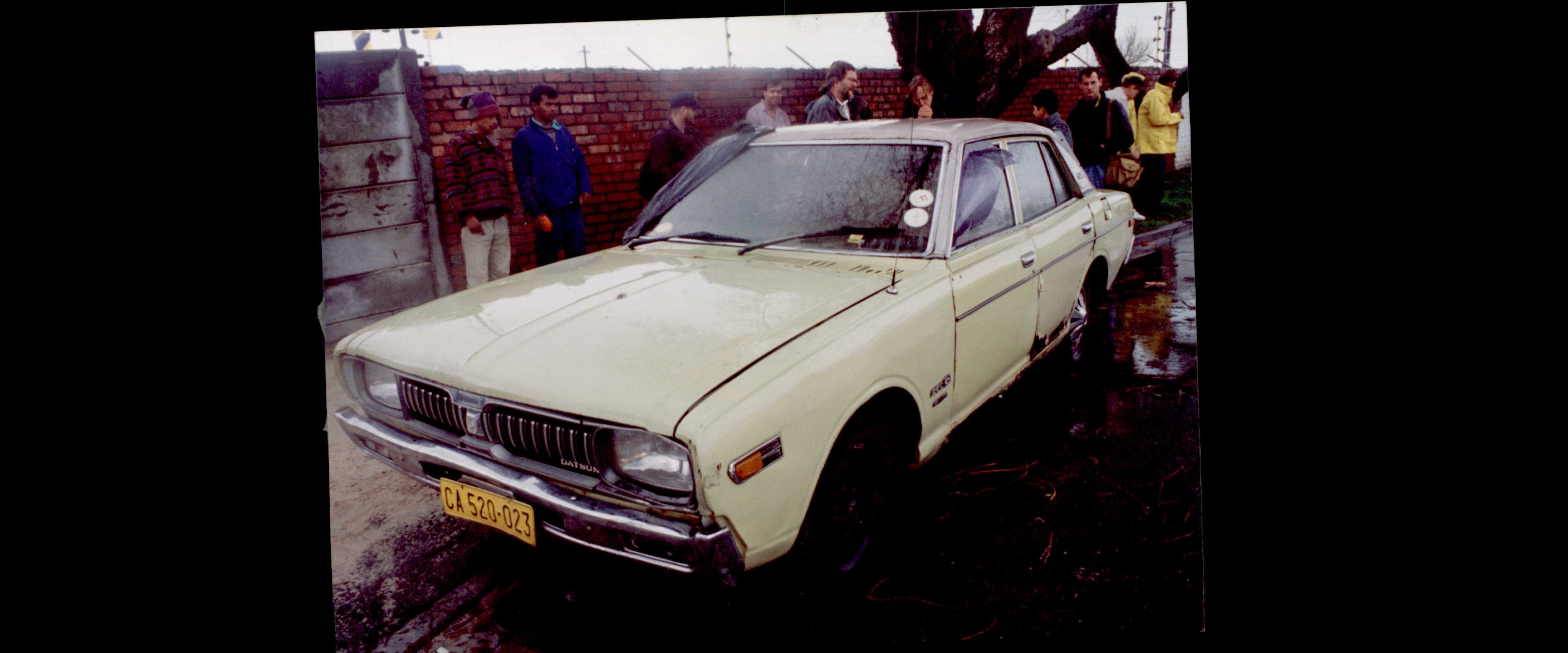

'I Forgive You'

Then-St James rector Frank Retief was well-known in South African evangelical circles as the country’s answer to US evangelist Billy Graham. He and his family had returned to Cape Town that very day from London and he had not been in church that evening. He was awoken by a knock on the door around 20 minutes after the incident with the news.
“At that time things like that had been happening around the country and I got the fright of my life," he says.
“I arrived here to something that I’d never forget, and that was all these police streamers, lights flashing, ambulances…
"In my throat my heart was beating because my children were in the church, and I didn’t know what had taken place."

Frank Retief
Frank Retief
His children were safe, but it was one exchange he witnessed in the foyer of the church that, in his view, would come to define a core component of the story that would immediately go global.
Father and husband Dawie Ackermann was having a heart-rending conversation with his three children. He had just returned from the hospital to tell his family that their mom, Marita, had died.
"He comes back and he puts his arm around them and he says to them 'your mother has died'. As soon as he says those words, someone from one of the news platforms puts a camera in his face and asks him, 'what have you got to say?' He says:
'I don’t know who you are, I don’t know why you’ve done this. You’ve taken away from me my wife. You’ve taken from my children their mother. But in the name of Jesus Christ, I forgive you and I want you to turn yourself in'."
Ackerman’s astonishing comments and those of many others would be beamed to the country later that night, and according to Retief, "that message of forgiveness took the place by storm. It went around the country and really was the thing that made this whole thing a miracle."
In the context of an unsettled South Africa, including calls for retaliation for the murder of South African Communist Party leader Chris Hani just three months prior, into the violence, there was a call for forgiveness from a grieving church.
Retief says the church received tons of hate mail from members of the public who misunderstood what the church had meant by forgiveness. It was of course, not condoning the murders, but rather that God and the State should be the ones to exact justice.
"We had to explain to our people and the TRC what we meant by forgiveness. In our study of the Bible, this is how we came to see forgiveness: that it is available on the basis of justice. There has to be justice before there is forgiveness, even God deals with us like that. As Christians you can come to the Cross and ask for forgiveness, but of course that forgiveness isn’t free, it cost Christ something [his life], and so likewise justice is required.
"We felt that justice needed to be seen to be done to the perpetrators, but nevertheless we would forgive them. We would not take that justice, 'Revenge is mine, says the Lord'."
Allowing God his divine prerogative, Anderson adds, allowed the church to express unconditional love towards enemies in search of peacemaking, while still expecting justice to be served and not condoning evil.


Peace after the Storm

And so, this message became the rallying cry of a church rebuilding, while the country wrestled with its own journey toward forgiveness and reconciliation.
All four perpetrators were eventually arrested by 1996. Three would receive amnesty during a TRC application in 1997-98, arguing that they were following orders and that churches had been "complicit" in taking land from black people during apartheid. The TRC nonetheless labelled the attack and the others sanctioned by APLA during this period as "gross violations of human rights”. Three of the men would apologise to the church, both at the TRC and privately at the church.
As this process unfolded, the victims of the St James Church Massacre aimed to live out their creed which had become so painfully real for them during the Night of the Storm.
Gie said that while some were scarred by the event, she had been determined to return to the place she calls home, and did so a week later. "We had prayer meetings and police set up counselling sessions and people on the whole wanted to come back to church. There was a dogged determination amongst us that we weren’t going to let evil prevail."
She was also grateful for small but lasting mercies, like the storm keeping many people at home that fateful night or ensuring the back doors of the church would be locked, scuppering the plan for further destruction.
The church itself experienced a boom in visitors and empathy following the attack, and struggled to accommodate all the well-wishers and sympathisers from around the world who would visit in the weeks and months that followed, with numbers often overflowing into the foyer, said both Smith and Retief.
Retief and church members were invited to speak on forgiveness to audiences around the world. Van Wyk was commended by police and would later befriend Makoma while the latter was in prison.
For Lulu Mdodana, who escaped on the night unharmed, but struggled like others with the aftermath, the process took a little bit longer. "While I was at the TRC hearings, I thought 'oh no, these people have done this to us and now they want amnesty?' No, I was still angry.
"But when I got back, I thought about this: I sin every day and God forgives me. What they must do is repent. And looking at the people who lost family members, they were able to forgive, so I too forgave them... I am at peace."

Lulu Mdodana
Lulu Mdodana
And for Craig Smith, who lost his mom Myrtle that tragic evening, he had this to say 30 years later: "At that stage we didn’t know who the perpetrators were, but the spirit of forgiveness was there. We also know it’s pointless fighting violence with violence, it's just a downward spiral, so God’s way, is the better way.
"If you have experienced God's forgiveness, that goes a long way in helping you to forgive someone else that has done these things to you."
Finally, Anderson had this to add: "Love is the only force that can transfer an enemy into a friend, and out of a situation like that, bring genuine peace."
St James held a memorial service on Tuesday evening to commemorate 30 years after the Massacre and honoured the memory of the 11 people who were killed that night.
